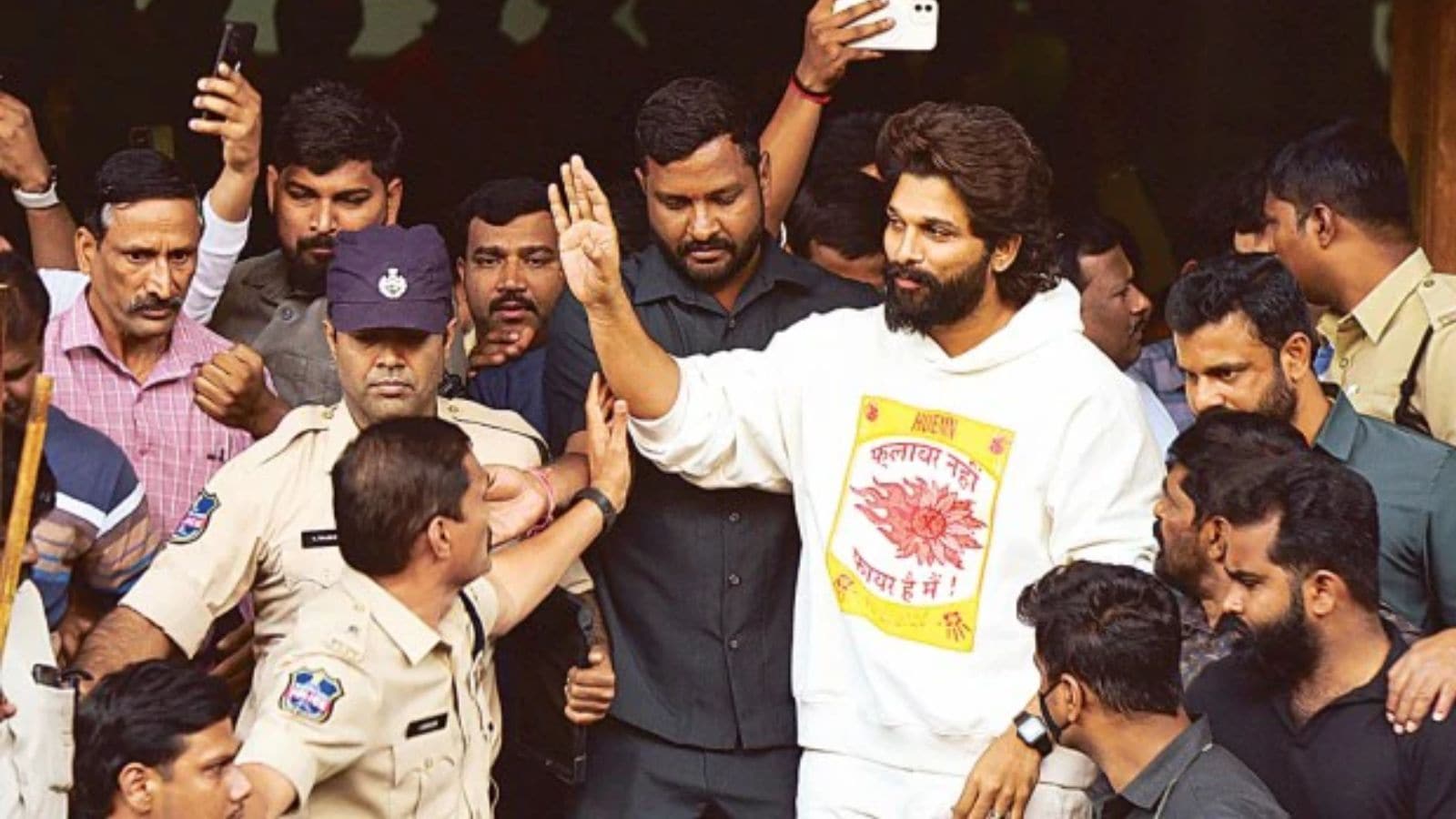 |
|
The recent arrest of Telugu film superstar Allu Arjun following a stampede at a Hyderabad theatre screening of his film, Pushpa 2: The Rule, highlights a disturbing trend in the Indian legal system: the abuse of criminal laws to create a spectacle of punishment, regardless of actual guilt or due process. While the death of a woman in the stampede is undeniably tragic and demands thorough investigation, the focus has shifted from the root causes of the incident to a theatrical display of legal action against a prominent figure. The FIR registered against Allu Arjun, his security team, and the theatre management under sections relating to culpable homicide and voluntarily causing hurt, paints a picture of culpability that significantly stretches the bounds of reasonable interpretation. The suggestion that Allu Arjun, simply by attending the premiere, is responsible for the death, ignores the complex interplay of factors contributing to the tragedy. The lack of adequate crowd control measures, poor theatre management, and the inherent risks associated with large gatherings of enthusiastic fans are all relevant factors that seem to have been sidelined in favor of a convenient scapegoat.
The argument that Allu Arjun’s presence at the premiere directly caused the stampede and subsequent death is weak at best. The FIR implies a level of intent or knowledge on his part that is simply not substantiated by the evidence. It is far-fetched to suggest that the actor intended to cause death or even had knowledge that his presence would lead to such a catastrophe. The fact that he was present at the theatre, and not after the event transpired, makes this argument even more precarious. Furthermore, there is no evidence of overt actions on his part, such as inciting the crowd or deliberately disregarding safety protocols. The case appears to be built on the presumption of his celebrity status – an implicit expectation that he bears a superhuman level of responsibility for the actions of the crowd. The principle of personal responsibility is important, but in this instance, placing such an enormous burden on a celebrity to manage crowd behavior seems unreasonable and sets a dangerous precedent. The entire situation is emblematic of a system where public attention and celebrity status frequently outweigh actual evidence and legal due process.
The arrest itself raises further concerns. The justification for the arrest is questionable, appearing motivated primarily by the desire to appease public sentiment and demonstrate a swift response to the tragedy. The principle that arrest should be the exception rather than the rule seems to have been disregarded in this case. The lack of evidence suggesting that Allu Arjun was a flight risk, or that there was any danger of tampering with evidence or intimidation of witnesses, makes the arrest particularly inexplicable. The media portrayal of his arrest – during breakfast at his home – only underscores the performative nature of the entire event, emphasizing the arrest as a spectacle rather than a necessary step in a fair investigation. This approach undermines the very foundations of the judicial system, creating an impression of arbitrary justice that is deeply concerning for all citizens, regardless of their public profile.
Beyond the immediate arrest, the investigation process itself seems designed to be punitive. Even after securing interim bail, the actor faces the ongoing prospect of prolonged questioning and harassment. The reports that Allu Arjun was called in for questioning for three hours, with only 20 questions asked, suggest a deliberate tactic of wearing down the accused. This is a common pattern in many investigations, even where there’s no compelling reason for such lengthy interrogations. The fact that the court granted interim bail does not seem to offer significant protection against these ongoing forms of harassment. The legal system's failure to effectively prevent these practices shows a deeply ingrained problem within the machinery of justice – that the investigation process often functions as a form of punishment in itself, irrespective of whether guilt is ultimately proven. This raises serious questions about the fairness and impartiality of the process, further highlighting the absurdity of the situation.
The entire episode serves as a cautionary tale about the potential for abuse within the criminal justice system. The time and resources spent on this case, which seem disproportionate to the evidence, could have been used to address more pressing issues and investigate the actual systemic failures that led to the stampede. The prioritization of spectacle over justice sets a dangerous precedent, undermining the integrity of the legal system and eroding public trust. The incident is not just about Allu Arjun; it reflects a deeper problem within the legal and media landscapes, one where celebrity status and public pressure often override due process and fairness. The focus should return to a thorough, impartial investigation that addresses the root causes of the tragedy and prevents similar incidents in the future. The current focus on a high-profile arrest overshadows this critical need for accountability and reform.
